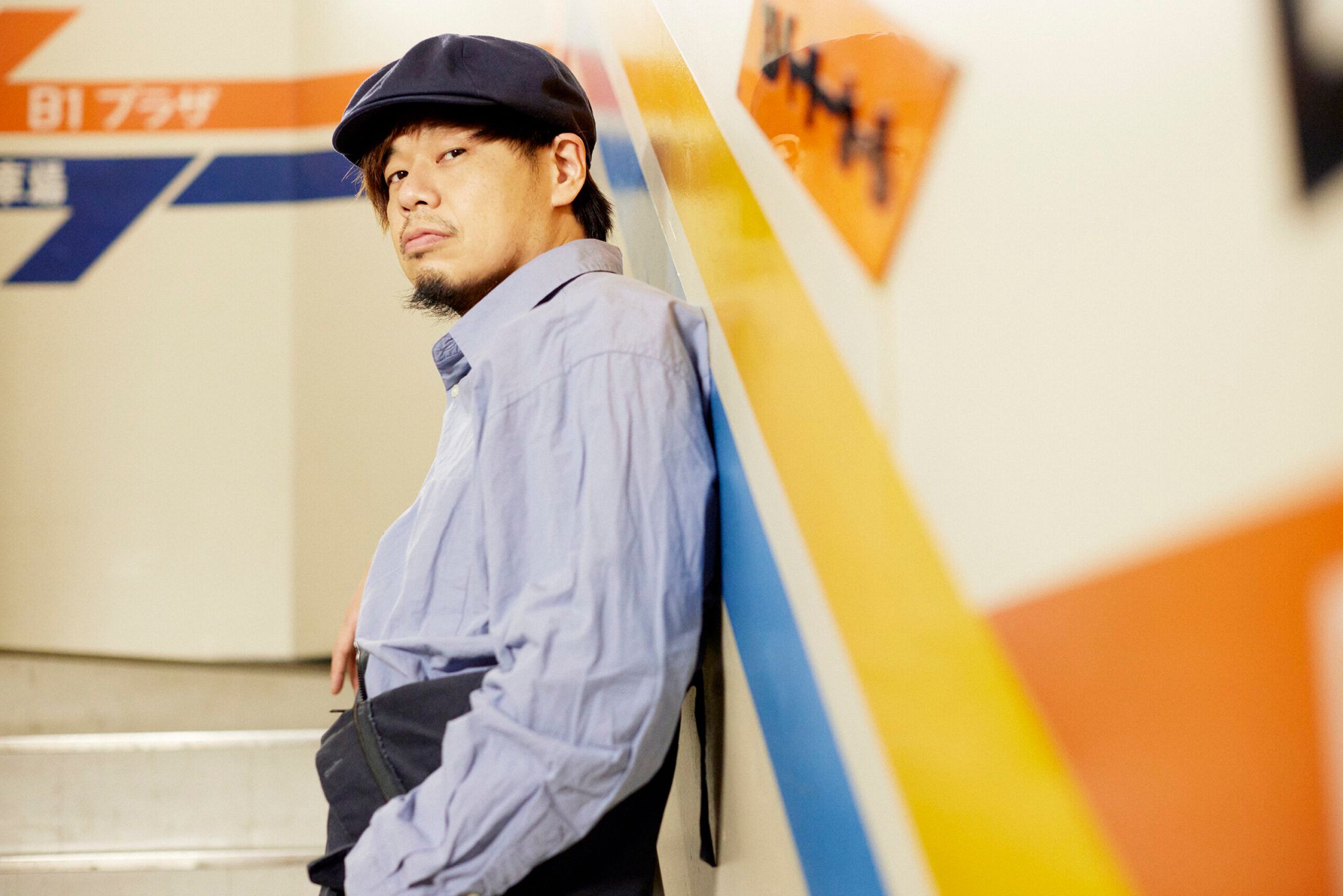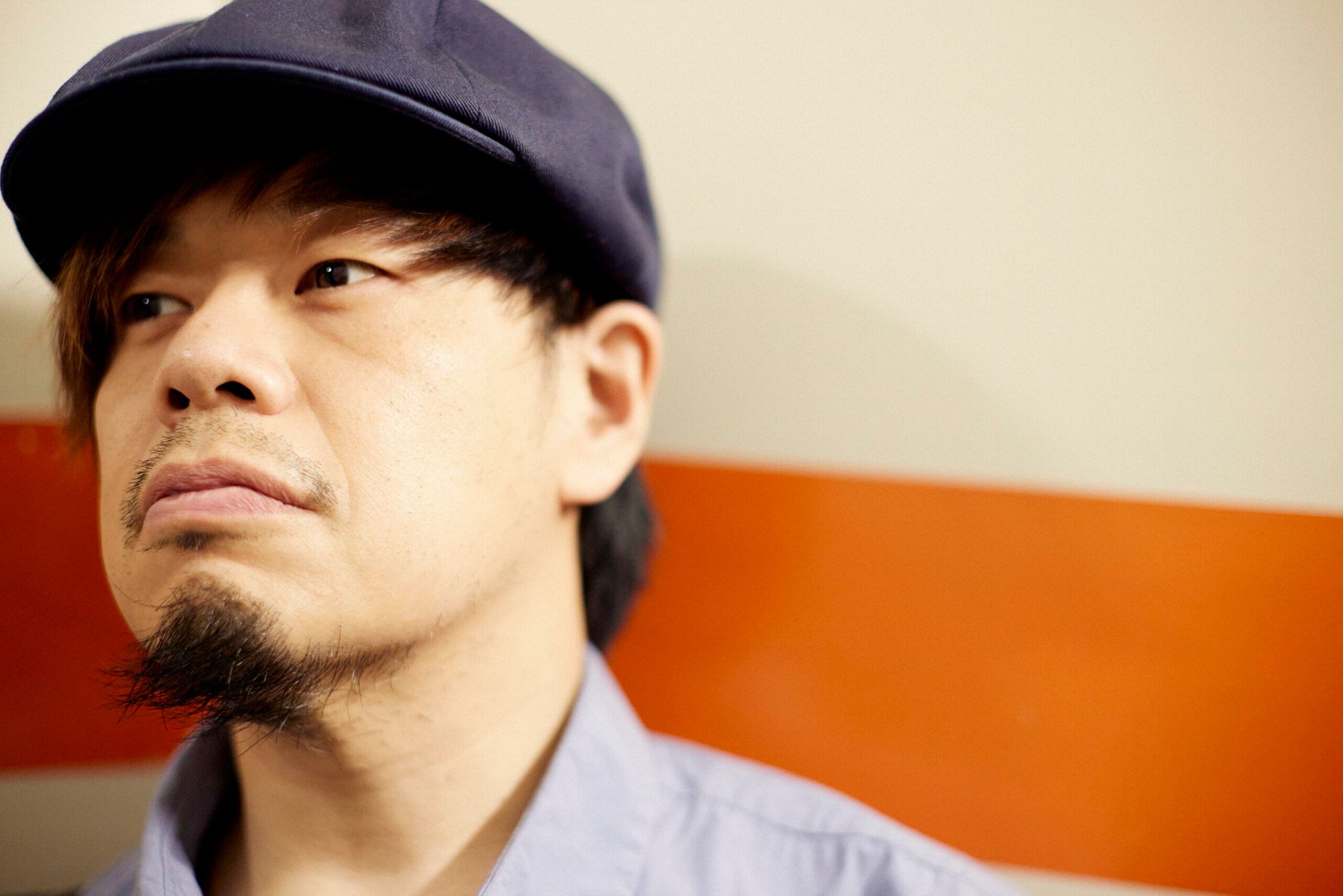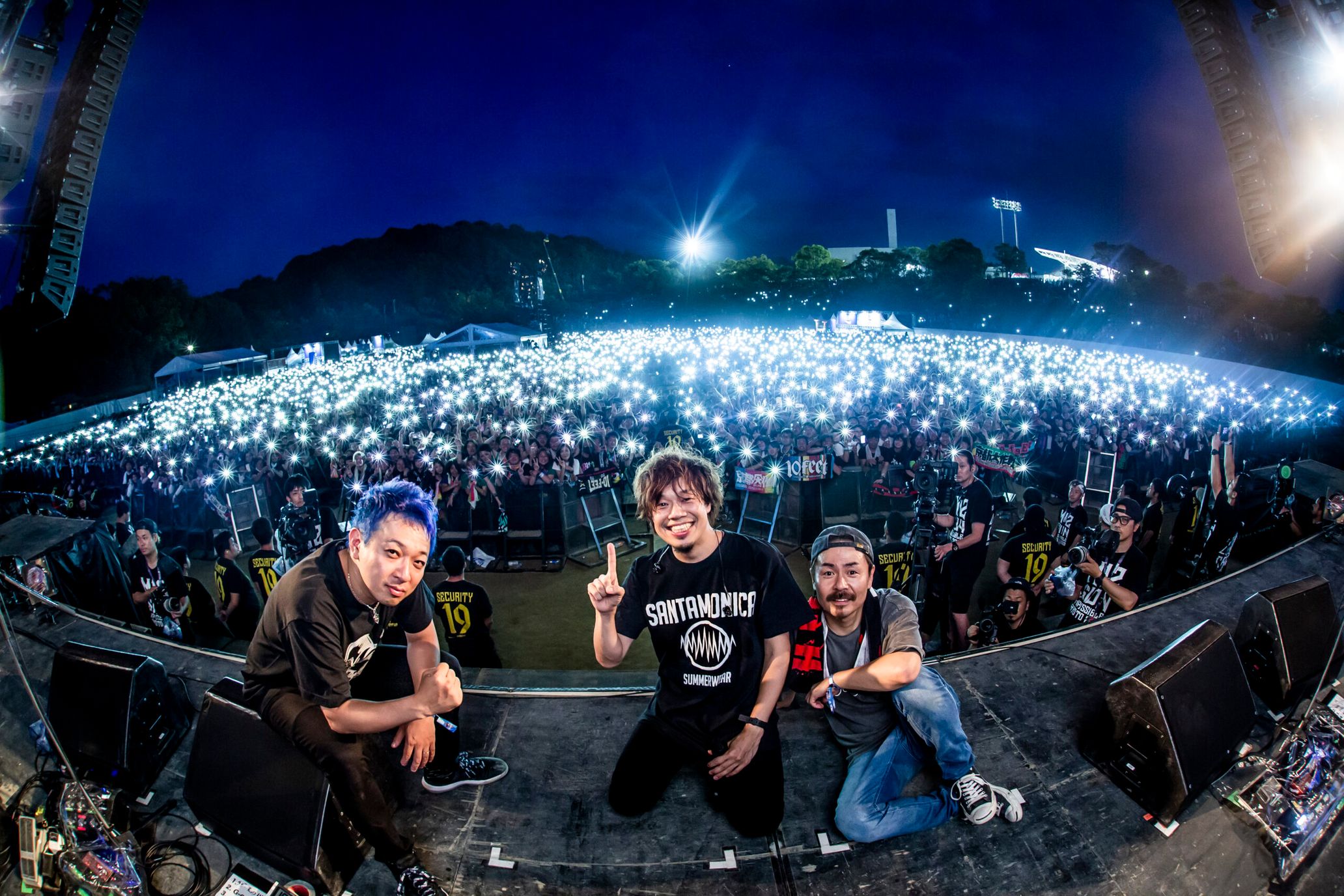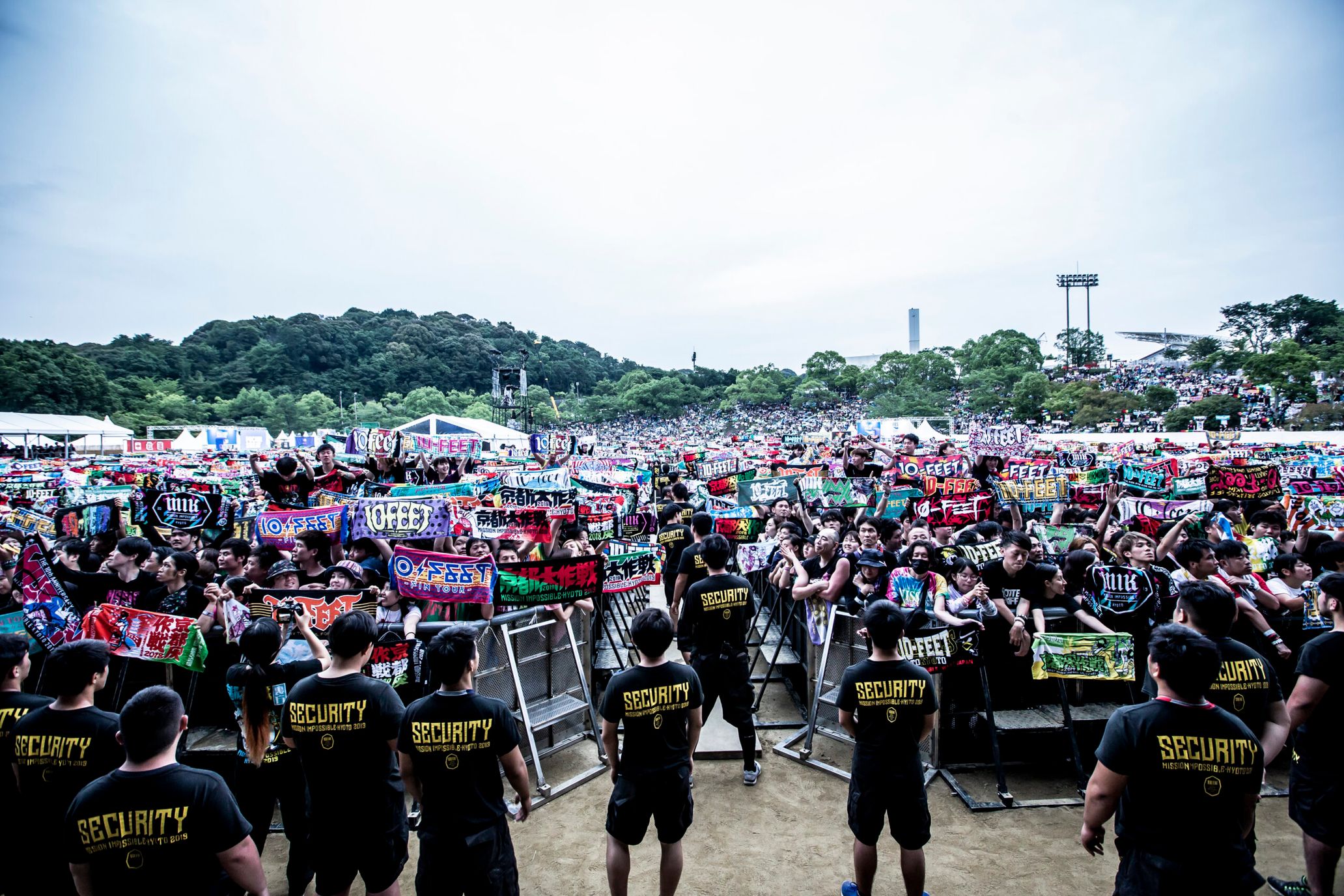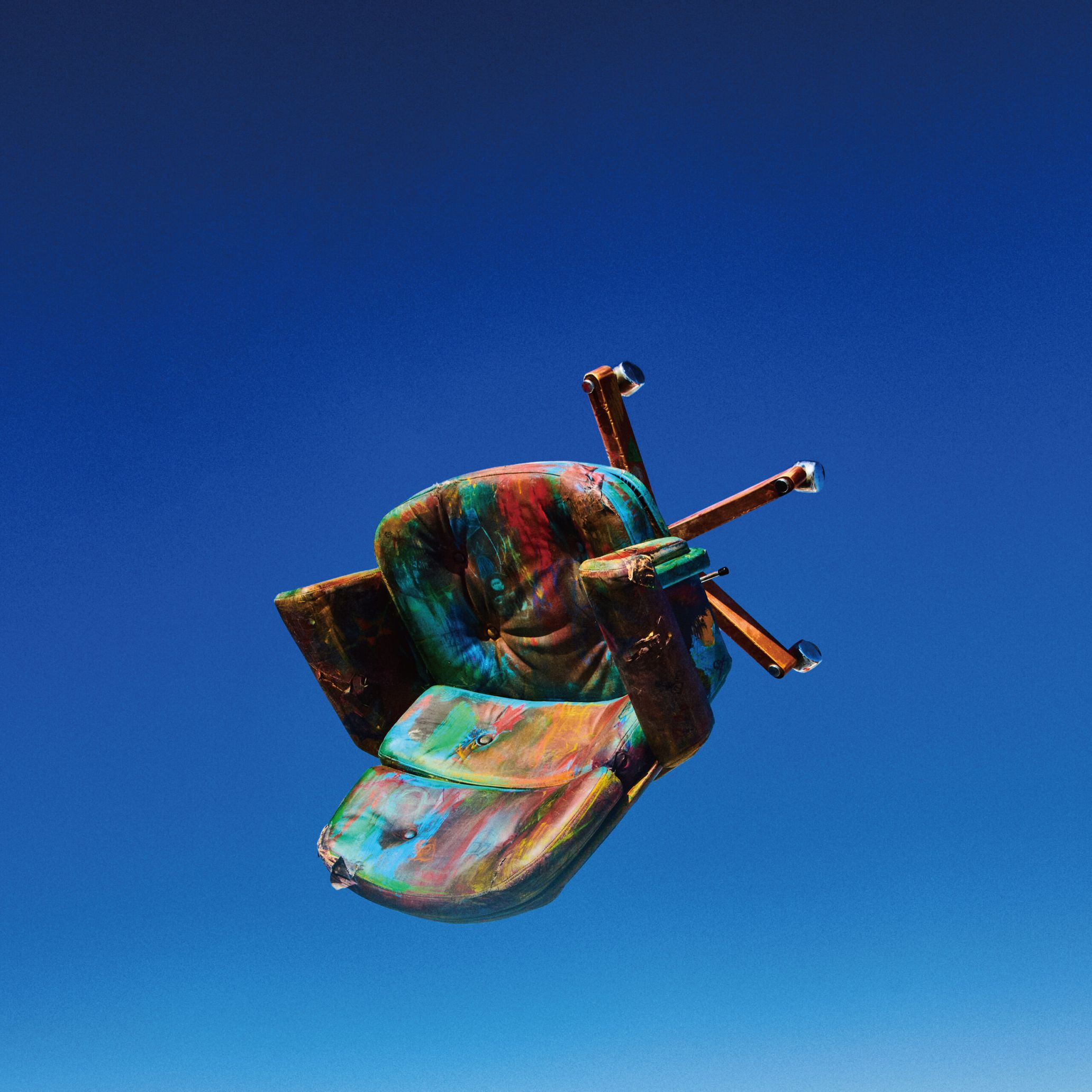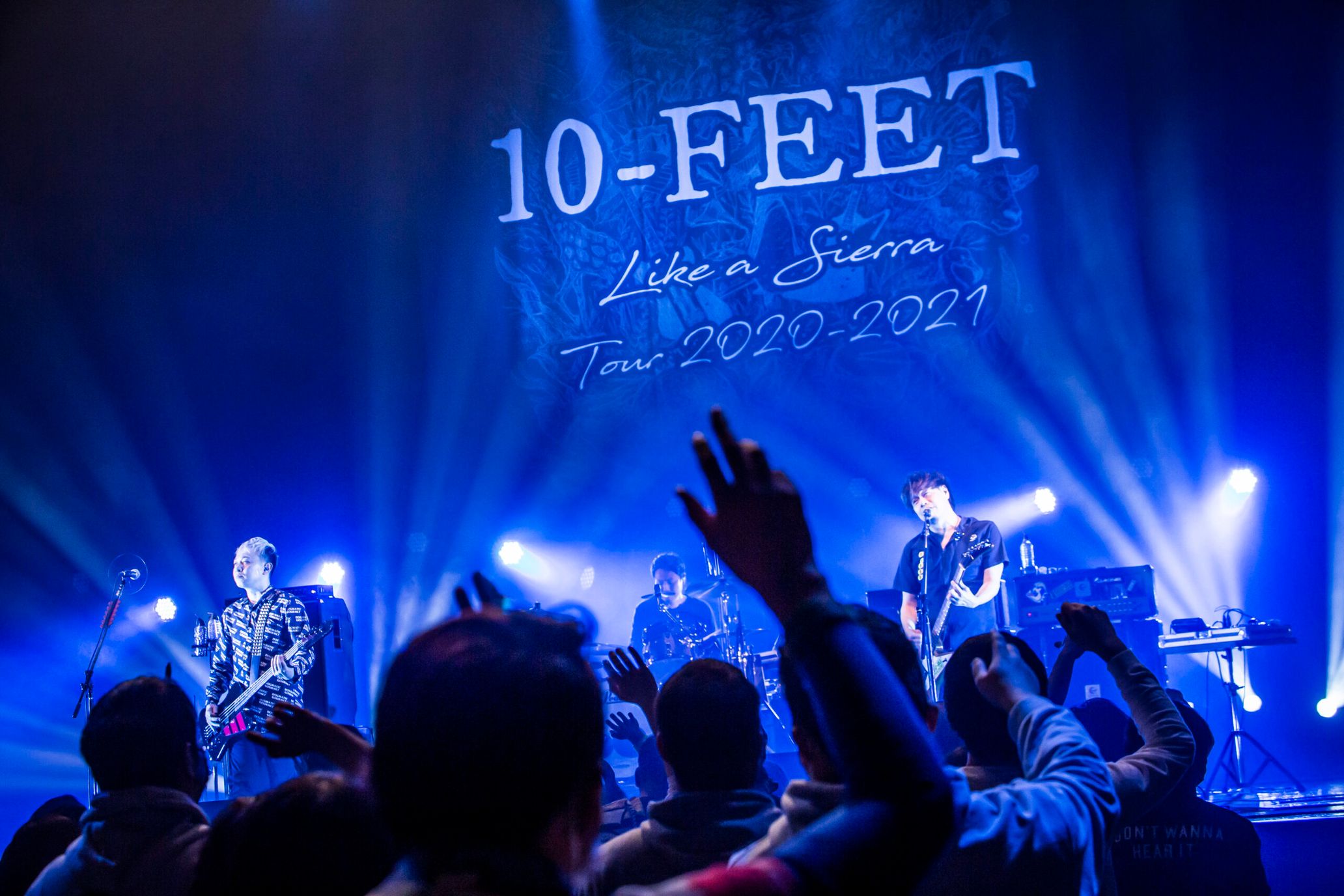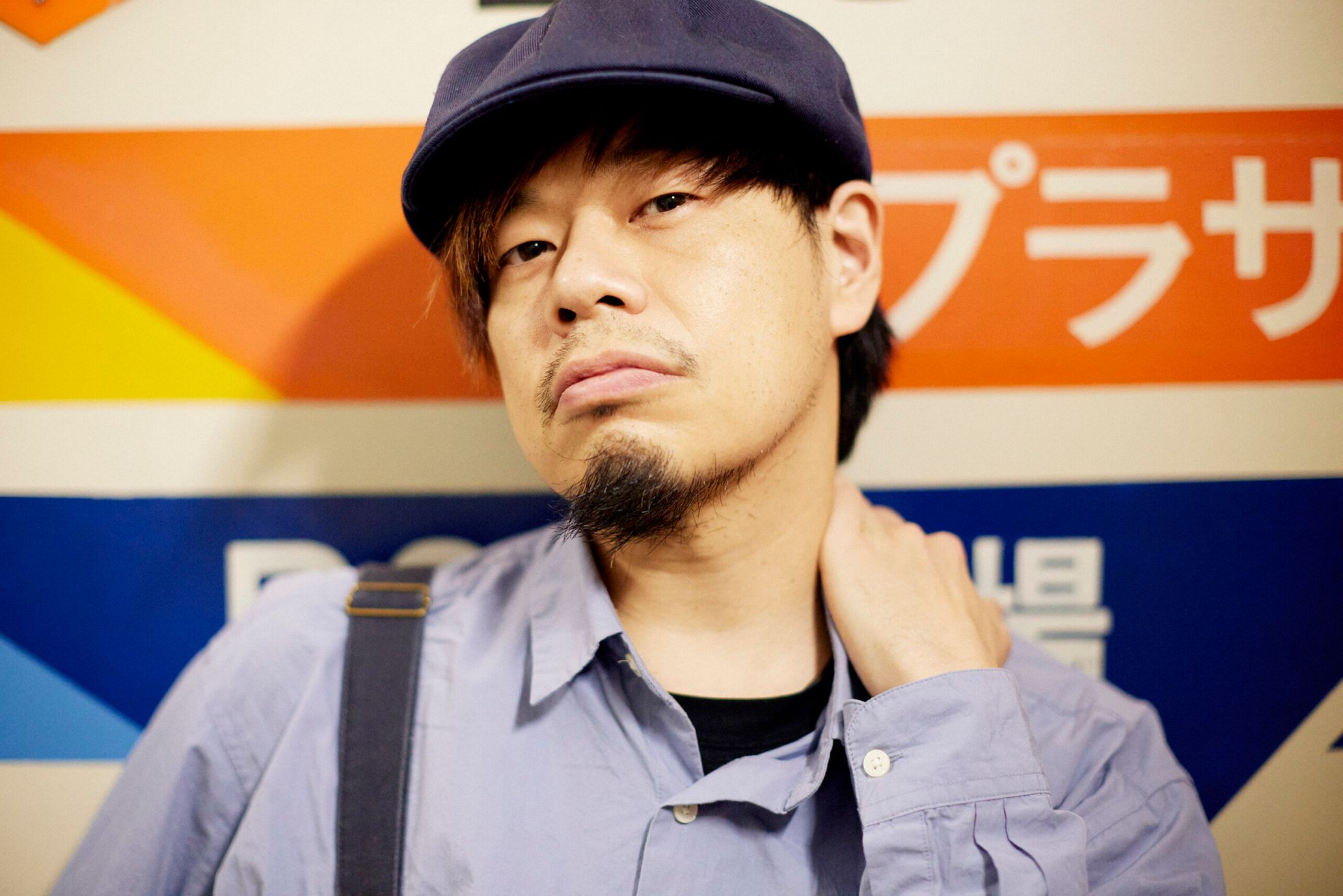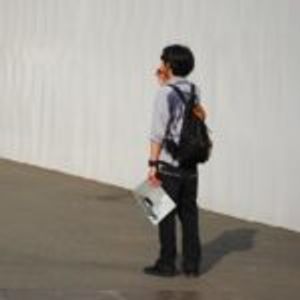There is a summer rock festival in Japan called Kyoto Daisakusen. It is an event hosted by the rock band from Kyoto—10-FEET—held in its hometown. The band that has released its new EP Ao in this year’s March, is also nested in its local town of Kyoto. In the modern world, where social media has become the mainstay of creative outputs, locations of artists have not become the main focal point anymore. But then, what are the advantages of staying in the hometown? I spoke with the band’s lead singer, TAKUMA, to discover the answers to the questions arising in the modern world of the ‘New Normal’, and the band’s intentions as they move forward.
Realizing the appeal of my local town from living in Tokyo
――In the beginning of your career as 10-FEET, you were based in Tokyo, but why did you decide to move back to your hometown?
TAKUMA: In the beginning, we were mainly playing shows hosted by the clubs in Tokyo, but when we started touring for every new release, we were only home a day or two every month.
We were mainly touring all over Japan, and whenever we weren’t touring, we were in the studio all day making music. That’s when we realized that there’s not much point in living in Tokyo anymore—Even if we lived in our hometown, nothing would change in what we do and make as a band. So, that’s why we moved back to Kyoto. I feel at ease surrounded by our families and old friends—Receiving these positive vibes from them is the essential part of living in my hometown.
――So, would you say it’s easier for you to be active in your hometown than in Tokyo?
TAKUMA: There are different advantages in the respective city. I think Tokyo is a great city, and as I lived there for a while, I’m deeply attached to it that it’s become my second hometown. In Tokyo, time flows faster than in Kyoto, and everyone in Tokyo moves faster as if they’re competing with time. And you can gain inspirations just by living in the fast-paced city. It’s a place where people with strong aspirations gather from different cities—So, you naturally get yourself motivated surrounded by those people. I also think that Tokyo is a fascinating city for those who are willing to connect and create something with others, and to share your vibe with people who are diligently pursuing their careers. I was able to see the beneficial aspects of Kyoto by living in Tokyo for a while, and now that I live in Kyoto, I’m starting to learn more about the city of Tokyo that I hadn’t been able to notice when I was actually living there.
The local independent music festival gradually coming together with everyone’s support
――10-FEET hosts the annual summer band festival, Kyoto Daisakusen. Would you say you’re keeping up the festival for the love of your hometown?
TAKUMA: Originally, Kyoto Daisakusen was meant to be an event to celebrate our 10th anniversary. We weren’t like: ‘We will be starting an outdoor event in Kyoto called, Kyoto Daisakusen!’—it started more humbly with the help from our fans and other bands, and we were intending to do it only once. I don’t know if it was fate or not, but the first event got canceled due to typhoon.
――I remember the first-ever Kyoto Daisakusen that got canceled was titled, Kyoto Daisakusen 2007 ~Gion Matsuri to Kabutte Gomenna-Sai~ (Sorry that it’s on the same day as the Gion festival.) On the following year, the event finally opened with the title, Kyoto Daisakusen 2008~Kyonen wa Typhoon de Gomenna-Sai~ (Sorry for the typhoon last year.)
TAKUMA: That’s right. We were really looking forward for the first year to celebrate our 10th anniversary, and when it got canceled the bands, friends, and staff encouraged us: “Let’s make it happen next year.” All the bands who were planning to play for the festival came up to us and said, “We will keep ourselves available for next year.” Because of everyone’s support, we were able to finally make it happen in the following year. We’d basically waited two years for the event, and I guess the fans were feeling the same way and looking forward for it, because the energy of the crowd was insane. Every band owned the stage as if it was its own concert. And the audience were passionately greeting every band on stage. We were blown away by the incredible crowd—there was a great sense of unity. I think everyone there got to feel the amazing vibe, that at the end of the day, every artist said to us: “We want to do it again. We’ll definitely make ourselves available for it next year.”
――And that’s how the local independent festival was born.
TAKUMA: Consequently, yes. Back then, out of the entire lineup, we were the band with the lowest number of audiences, and we didn’t feel right hosting a music festival depending too much on other artists—however, after wrapping up the first Kyoto Daisakusen, we strongly felt everyone’s ardent mood of ‘Let’s do it again together!’ And that sparked us to think that we should organize the event again to meet the audience and artists’ expectations. As a result, Kyoto Daisakusen became an annual summer event.
――In fact, it’s become more than just a local event in Kyoto or in Kansai—it’s now one of the biggest summer festivals in Japan. What are your thoughts on that?
TAKUMA: Of course, we are always grateful for the artists and attendees as it wouldn’t have been possible without everyone’s support, and I’m glad that we were able to start this energetic rock festival—where anyone can have fun and party—in our hometown of Kyoto. I also hope that Kyoto Daisakusen provides an opportunity for those visiting from other parts of Japan to experience the stunning legacy of Kyoto.
For people to realize the importance of the club culture
(BADASS/EMI Records)
――Your 20th single and new EP Ao was released on March 10th, which seems to have a profound message towards the modern world going through the pandemic.
TAKUMA: We wrote the song “Ao” during the first state of emergency, which was around April to May 2020. The other two songs in the EP (“Asagiriwo Nukete” and “Tambourine”) were written around December 2020. But I didn’t write these songs intending to convey a clear message towards the modern world. There was nothing special with the writing process, but I wrote my honest feelings then and that I’ve accrued over years in the lyrics, so I think the songs happen to mirror the current state of the world. It’s inevitable to feel distressed when you can’t go out and have drinks with your friends or see other people. You feel confined and sad from distancing—and these emotions might be reflected in the songs.
――When I read the lyrics, I felt grief and frustration towards the modern era, as well as a strong sense of determination.
TAKUMA: I wonder…. When writing songs, I endeavor to convert things that are sorrowful and regretful into music. But just because I’m singing about grief, it doesn’t mean it has to be a sappy song. In fact, negative emotions like sadness, regret, and ire can transform themselves into something different when they are in music. Fundamentally negative sentiments are likely to echo into a positive vibe—And I think that could be said for most of our songs, and the latest songs are no exception.
――I see. Under the current circumstance, it’s difficult for rock bands to play gigs and put their energies out there; however, in 2020, 10-FEET has successfully carried out the tour Sierra No Youni TOUR 2020-2021. Also, the band has recently announced the Ao TOUR 2021-2022 in support of their new single, “Ao.” Tell me why you’ve decided to continue touring under this circumstance.
TAKUMA: Even if the world changes, as long as we have a place to play gigs, we want to continue playing live shows in any form. We want to stay active as a live band. In the beginning of the pandemic, the bands, clubs, and many people in the entertainment industry were greatly affected by the circumstance, and the culture and scenes born from the clubs were at stake. So, we’ve decided to continue playing shows as much as we can, of course, with the major premise of ensuring safety for the fans and crew—We thought that this was the best decision considering ourselves, and to avert the culture and the clubs from fading into oblivion. Also, we believe that with our efforts of continuously playing live shows, we can keep the clubs warmed up for everyone. We’re on a mission and won’t stop touring as we think it would make the world realize the importance of culture and bands born from clubs.
――The guidelines for concerts say that people are not allowed to mosh, dive, and cheer, which would dramatically affect the atmosphere of a live performance—do you feel awkward playing gigs under the guidelines?
TAKUMA: Not at all. Aside from the crowd reaction, we’ve always been focusing on engaging the audience on an emotional level—so, they don’t necessarily need to go crazy, and they could just be standing still dumbfounded. I’ve experienced gigs where I was so stunned that I wasn’t moving at all. So, even with the guidelines, I’m sure it’s possible to put out a gig that’s great enough to make people think that it’s actually better than any of our past performances. Even under the circumstance, we’re always keen on putting on an awe-ing performance, that would potentially make the audience forget about the restrictions. But I can’t deny the fact that audience participations like moshing and sing-alongs are crucial in gigs, too—I sincerely hope for the pandemic to end soon, so that we can see everyone in the crowd go wild again.
Procuring the spotlight concentrated in Tokyo
――Thank you. Despite the fact, there are less gigs and parties now, there are more young people all around the world presenting their works on the internet and social media. Please give a message to those younger generations who are about to express themselves out to the public.
TAKUMA: I’d lived in Tokyo before, because compared to other parts of the country, it’s a city that is abundant in chances for people who want to become performers and to meet a lot of different people. And I think that’s still the same now. However, what’s different now from over 20 years ago—the time when we debuted—is that there are more tools that allow you to showcase your creative ideas to a wider audience. So, I guess you can be based anywhere, if you’ve got a true talent. There’s no need to move to Tokyo, because I’m sure you can present your creativity from home and impact a lot of people. I have been doing music before social media pervaded the world, and in retrospect, I remember feeling keenly that I had to be in Tokyo to gain recognition and earn the ‘spotlight.’ I guess now, it might be worth going to Tokyo to grasp the ‘spotlight’ twice or three times and bring the honors back home. My hometown is Kyoto, but each city has its own culture and specialty—so, once you seize that ‘spotlight’ in Tokyo, you can use it to highlight your hometown or yourself and introduce your holy grail to the world—which is the perk that didn’t exist in the old days. Luckily, the world of internet and social media isn’t negatively impacted by Covid. In other words, we’ve got access to the greatest tools of the current generation. So, I’d like to see people using them to the fullest extent possible.
TAKUMA
The vocal & guitar from the three-piece band, 10-FEET. On March 10th, 2021, the band has freshly released its 20th single, “Ao.” The band is planning a tour, Ao TOUR 2021-2022, starting this September. The band has also announced its music festival, Kyoto Daisakusen 2021~Chushi wa Mo Kanben-shitekuda-Sai (Majide)~, which will be held in July before its own tour.
10-feet.kyoto/
Instagram:@takumamitamura
Twitter:@takuma10feet
Photography Teppei Hoshida
Text Ryo Tajima
Translation Ai Kaneda

